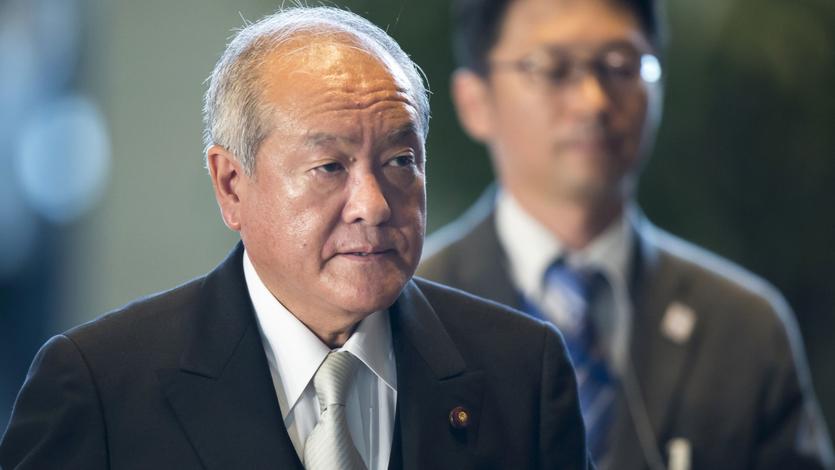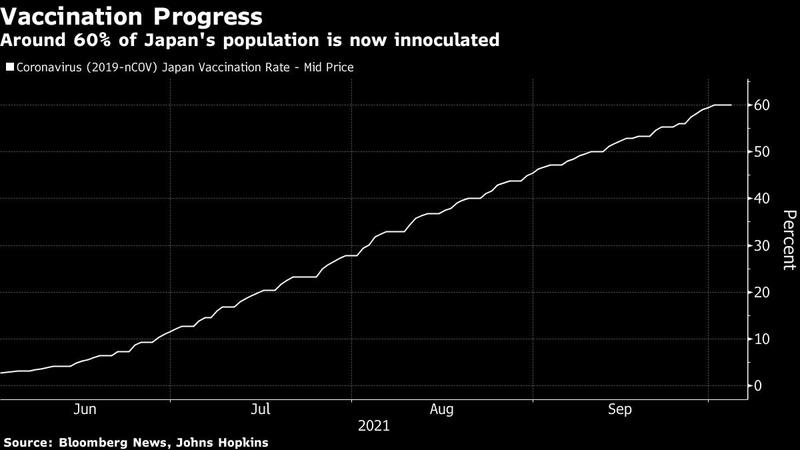 This undated photo shows Japan’s new finance minister Shunichi Suzuki(left). (PHOTO / BLOOMBERG)
This undated photo shows Japan’s new finance minister Shunichi Suzuki(left). (PHOTO / BLOOMBERG)
Former Olympics Minister Shunichi Suzuki on Monday became Japan’s first new finance minister in nearly nine years, replacing Taro Aso as the ruling party reboots its cabinet in the run-up to a general election.
The 68-year-old Suzuki was appointed to the job after helping to install the country’s new prime minister, Fumio Kishida, who took the job earlier Monday. The son of a former premier, Suzuki belongs to a political faction headed by Aso and is also the out-going finance chief’s brother-in-law.
Because of those ties, Suzuki is viewed as a steward of the status quo, much like his boss, Kishida. He’s seen keeping the fiscal policies of recent years and continuing to support the Bank of Japan’s bond-buying and ultra-low interest-rates, although there is speculation he might be susceptible to pressure to spend more.
“Suzuki doesn’t strike me as someone who’ll stick to his own principles,” said economist Yuichi Kodama at Meiji Yasuda Research Institute. “He’s more the kind of a person who’s keen on coordinating efforts. He won’t object to Kishida’s plan to keep spending until the pandemic comes to an end.”
Shunichi Suzuki’s first order of business will be budgeting for a stimulus package that Fumio Kishida has said will be in the tens of trillions of yen as the new administration tries to get Japan’s COVID-19-hit economy back onto a more solid recovery track
Suzuki’s first order of business will be budgeting for a stimulus package that Kishida has said will be in the tens of trillions of yen as the new administration tries to get Japan’s COVID-19-hit economy back onto a more solid recovery track.
“I’ll do my best,” Suzuki told reporters Monday. “I haven’t gotten any specific instructions from the prime minister yet regarding an economic package, but he’s talked about a new form of Japanese capitalism and creating a virtuous cycle of growth and wealth distribution.”
Suzuki, who was also appointed to head Japan’s financial regulator, will need to show a steady hand in communicating the government’s policies before a general election that local media is reporting will be held on Oct 31.
Japan’s new economic team is rounded out by Koichi Hagiuda, a holdover from the last cabinet who becomes minister for trade, and Daishiro Yamagiwa, another lawmaker in Aso’s faction, who was named economy minister. Takayuki Kobayashi, a relative newcomer at 46 years old, was appointed minister of economic security, a newly created position.
Foreign Minister Toshimitsu Motegi and Defense Minister Nobuo Kishi stayed on.
ALSO READ: Kyodo: Senior Japan ruling party member suggests early elections
The new cabinet may struggle to attract voter interest given that it’s composed mostly of party veterans. Of its 20 members, just three are women, another sign of the administration’s conservatism and a lack of progress toward gender equality in Japan’s male-dominated politics.
Still, Kishida inherits an economy that’s mending from the pandemic, although its growth still lags the pace in the US or the UK.
 This undated photo shows Japan's vaccination progress, around 60 percent of Japan's population is now innoculated.(PHOTO / BLOOMBERG)
This undated photo shows Japan's vaccination progress, around 60 percent of Japan's population is now innoculated.(PHOTO / BLOOMBERG)
With virus cases dropping quickly and vaccination rates above 60 percent, the government last week was able to lift a state of emergency and allow more activity. A report from the BOJ also showed confidence among big Japanese businesses unexpectedly improved for a fifth straight quarter, suggesting a potentially faster recovery under the nation’s new prime minister.
Kishida has also hinted he’ll put pressure on firms to raise wages, starting with an effort to increase paychecks for public sector workers including nurses, kindergarten workers and caregivers for the elderly. Securing funding for that would also be part of Suzuki’s near-term job.
Further out, Suzuki faces the perennial problem of what to do about Japan’s growing mountain of debt. The country’s aging population has caused social security spending to balloon. And with pandemic borrowing of more than $720 billion for three extra budgets last year, the country’s debt-to-GDP ratio has climbed above 250 percent.
Given Kishida’s support for the BOJ’s 2 percent inflation target and the unlikelihood he’ll push for any short-term changes in monetary policy, Suzuki probably won’t have to contend with rising bond yields as he stewards Japan’s finances for the time being.
READ MORE: What Japan's middle-of-the-road new leader means for markets


